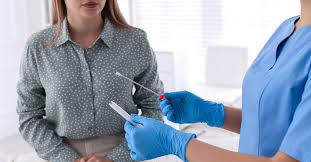For the first time, researchers have found a potential connection between a sexually transmitted infection spread through kissing and oral sex and skin cancer.
Human papillomavirus (HPV) is the most widespread sexually transmitted infection in the United States, with around 42 million Americans infected at any given time. HPV is already well-known for causing cancers of the throat, cervix, and anus.
Now, scientists at the National Institutes of Health (NIH) suggest that HPV may also contribute to squamous cell carcinoma — the second most common form of skin cancer in the U.S., with 1.8 million cases diagnosed annually.
This discovery came after a detailed study of a 34-year-old woman who experienced recurrent skin cancer on her forehead, which persisted despite multiple surgeries and immunotherapy treatments.
Initially, doctors believed her persistent cancer was linked to a rare immune disorder called RIDDLE syndrome, which weakens the immune system and increases sensitivity to radiation.
However, further analysis at the NIH revealed that HPV had integrated itself into the DNA of her cancer cells, possibly causing the cancer to become more aggressive.
Tests also showed that her skin cells could still repair damage from ultraviolet (UV) exposure, indicating that sun damage was not the primary cause of her skin cancer.
Dr. Andrea Lisco, the lead virologist on the study, explained, “This discovery could completely change our understanding of how certain skin cancers develop, especially in people with compromised immune systems.”
She added, “There may be more individuals with aggressive skin cancers linked to immune system defects who could benefit from treatments aimed at boosting immune response.”
While these findings, published recently in the New England Journal of Medicine, are preliminary, they open up new avenues for research into the role of HPV in skin cancer development and potential therapies.




